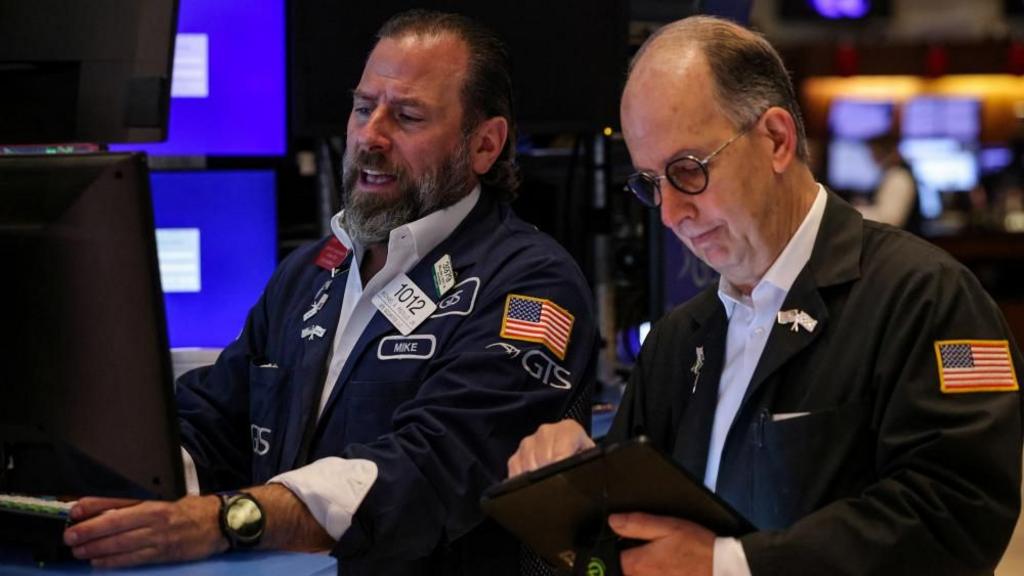U.S. Stands Firm on China Policy Despite Market Turbulence
U.S. Stands Firm on China Policy Despite Market Turbulence
By
Leah Rosenfeld
Last updated:
October 16, 2025
First Published:
November 30, 2025

Photo: BBC
Treasury Secretary Scott Bessent reaffirmed on Wednesday that the United States will not alter its approach toward China despite recent swings in the stock market. Speaking at CNBC’s Invest in America Forum, Bessent emphasized that market fluctuations would not dictate Washington’s policy decisions, underscoring the administration’s focus on maintaining economic strength and trade leverage.
“We won’t negotiate because the stock market is going down,” Bessent stated firmly. “Our decisions are based on what’s best economically for the U.S., not on daily market sentiment.”
His remarks came amid heightened volatility in global markets, with investors closely watching the ongoing U.S.–China trade tensions. Over the past week, the S&P 500 and Nasdaq Composite have each experienced notable declines following renewed tariff threats and shifting diplomatic signals from both sides.
Bessent also addressed a recent Wall Street Journal report suggesting that Chinese President Xi Jinping believes the U.S. economy cannot withstand a prolonged trade conflict. The Treasury Secretary rejected that notion, calling the report “terrible” and accusing it of echoing “CCP dictation.”
“The idea that we’ll change course because of a few rough days in the market is simply wrong,” Bessent added. “The American economy is built to endure short-term volatility while pursuing long-term gains.”
According to analysts, Bessent’s comments signal Washington’s continued readiness to impose further measures on Beijing if deemed necessary. The administration recently hinted at potential new tariffs in response to China’s restrictions on rare earth mineral exports—materials crucial to high-tech manufacturing and clean energy industries.
The uncertainty surrounding these trade talks has rattled Wall Street. On Friday, U.S. markets tumbled after former President Donald Trump threatened higher tariffs on Chinese imports. A brief rebound followed early in the week as investors bet on de-escalation, but volatility returned Tuesday when Trump accused Beijing of “economic hostility” for slowing U.S. soybean purchases.
Despite the market’s ups and downs, Bessent maintained that the administration’s trade actions are rooted in sound economic policy. “President Trump believes in a strong stock market,” he noted, “but he also believes that a strong market comes from good fundamentals—policies that promote investment, innovation, and job growth.”
Bessent highlighted that recent U.S. capital expenditures, particularly in artificial intelligence and manufacturing, reflect the administration’s long-term focus on strengthening domestic industries. “What we’re seeing is a capex boom driven by confidence in America’s growth potential,” he said.
The Treasury Secretary’s message was clear: the U.S. intends to stay the course in its economic confrontation with China, prioritizing structural reforms and national interests over short-term market comfort.
As negotiations remain tense, investors are bracing for continued volatility. But for Bessent and the administration, the message is unwavering — the U.S. will not back down, even if Wall Street trembles.
Popular articles
Subscribe to unlock premium content
Snow, Silence, and Splendor

The $60 Million Market for Ultra-Exclusive Executive Pop-Up Experiences

Conquering the Poles in Absolute Luxury

Snow, Silence, and Splendor

The $60 Million Market for Ultra-Exclusive Executive Pop-Up Experiences

Snow, Silence, and Splendor









